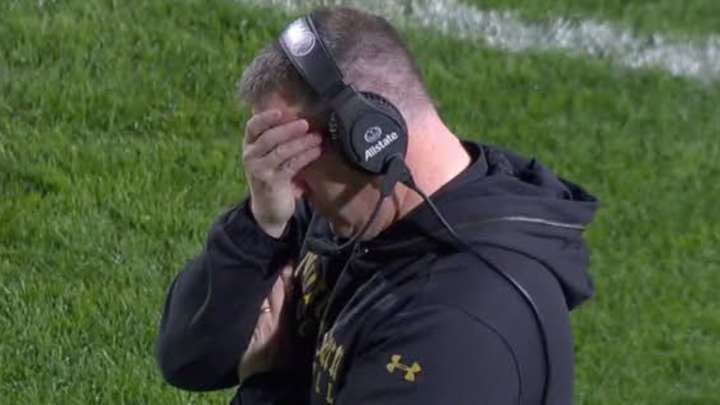NCAA makes decision on fake injuries in college football

In recent years, faking injuries in order to slow down games has been the subject of significant debate around college football.
But anyone who was hoping the NCAA would take action will be disappointed.
The NCAA announced that it will not add rules for the 2022 season that would give referees the authority to penalize teams that are believed to be faking injuries.
But there will be one minor change: programs that believe their opponents are faking injuries to slow the tempo of games can report the allegation to the NCAA.
What will it do with those reports? Not much, apparently, as the body didn't announce any actual penalties or sanctions that would prevent the practice.
Stanford coach David Shaw is the current NCAA football rules committee chairman.
"It is very difficult to legislate ethics, particularly when an injury timeout is being used to gain an advantage," Shaw said in a statement. "The small number of teams that seem to use these tactics should be addressed directly.
"We considered all options to address this issue, including allowing both teams an opportunity to substitute after a first down," Shaw added. "This is another step to consider in the future."
In addition to the ethical concern, the NCAA noted that if a player is legitimately hurt, he could be incentivized to remain on the field and risk more injury.
Fake injuries became a hot-button issue last season, especially after the Ole Miss vs. Tennessee game in Knoxville. Many of the Vols' opponents, including the Rebels, were accused of using pretend injuries to slow down UT's fast-paced offense.
"The committee considered several in-game options to address this, including altering the injury timeout rule to remove the injured student-athlete for more than one play, which is the current rule," the NCAA said.
"This concept was debated at length, but the committee was concerned with the additional issues that could be created and did not want to encourage players to continue to participate when injured. Committee members discussed how the pace of play appears to be contributing to this concern."
Remember to bookmark our homepage to keep up with college football’s latest headlines and follow us on Facebook and Twitter
